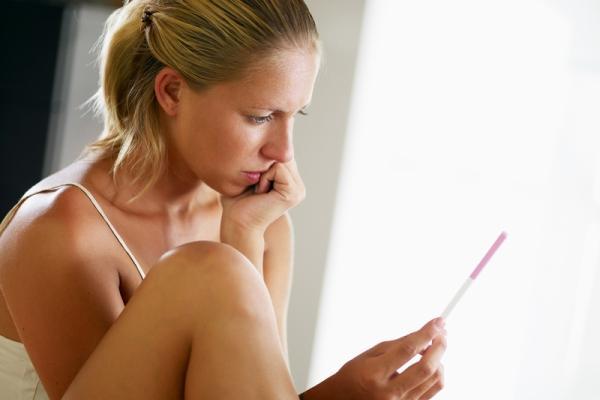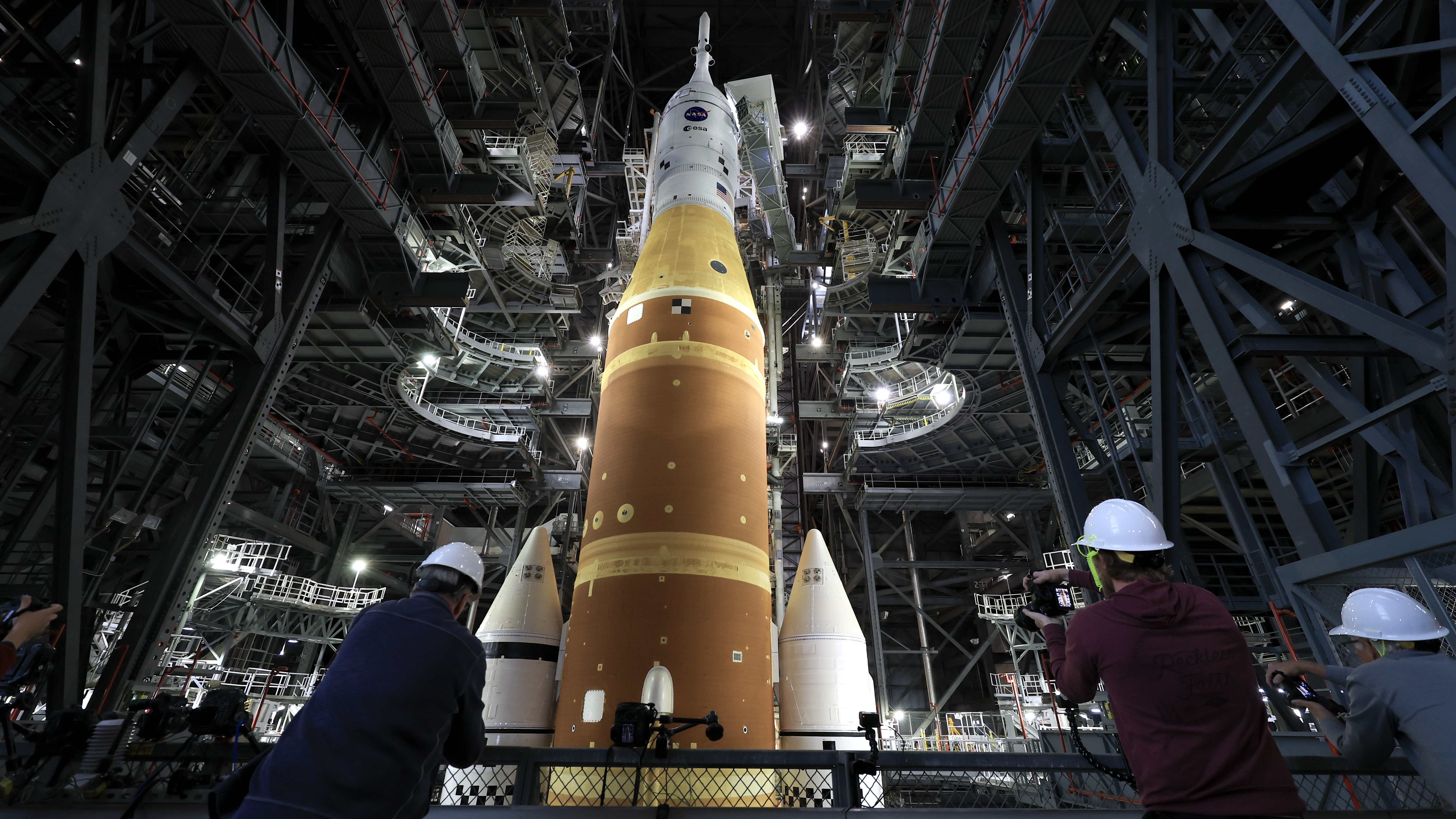Can Acupuncture Help Women Get Pregnant?

Get the world’s most fascinating discoveries delivered straight to your inbox.
You are now subscribed
Your newsletter sign-up was successful
Want to add more newsletters?

Delivered Daily
Daily Newsletter
Sign up for the latest discoveries, groundbreaking research and fascinating breakthroughs that impact you and the wider world direct to your inbox.

Once a week
Life's Little Mysteries
Feed your curiosity with an exclusive mystery every week, solved with science and delivered direct to your inbox before it's seen anywhere else.

Once a week
How It Works
Sign up to our free science & technology newsletter for your weekly fix of fascinating articles, quick quizzes, amazing images, and more

Delivered daily
Space.com Newsletter
Breaking space news, the latest updates on rocket launches, skywatching events and more!

Once a month
Watch This Space
Sign up to our monthly entertainment newsletter to keep up with all our coverage of the latest sci-fi and space movies, tv shows, games and books.

Once a week
Night Sky This Week
Discover this week's must-see night sky events, moon phases, and stunning astrophotos. Sign up for our skywatching newsletter and explore the universe with us!
Join the club
Get full access to premium articles, exclusive features and a growing list of member rewards.
Can an acupuncture prick help women get pregnant? The technique seems to have only limited success when used complementarily with in vitro fertilization (IVF), according to a new international study.
IVF procedures involve fertilizing a woman's eggs with sperm in a laboratory, and then implanting a viable embryo in a woman's uterus. Acupuncture, yoga and hypnosis are common complementary therapies for IVF, and are done with the aim of improving the chances of a successful pregnancy.
In a review of 16 independent studies involving more than 4,000 women, the researchers found that acupuncture had no benefit for patients who had visited IVF clinics with a history of higher-than-average pregnancy success rates. Acupuncture did increase the pregnancy rate, however, for patients at below-average IVF clinics.
"The lower the baseline pregnancy rate at the clinic, the more adjuvant acupuncture seemed to increase the pregnancy rate," said Dr. Eric Manheimer, lead author and research associate at the University of Maryland Center for Integrative Medicine.
The study, published online June 27 in the journal Human Reproduction Update, adds more varied results for the use of acupuncture in conjunction with IVF, which has seen mostly mixed outcomes since it was first studied about two decades ago.
Surprisingly low odds
Although IVF has been available for more than 30 years, pregnancy success rates remain low — about 35 percent for U.S. women ages 35 to 40, and about 20 percent for those ages 40 and older, according to the Centers for Disease Control and Prevention. The cost is typically more than $10,000 per attempt.
Get the world’s most fascinating discoveries delivered straight to your inbox.
Many women have turned to acupuncture to increase their odds of getting pregnant via IVF. The therapy became more popular after it was featured on the television program "Sex and the City."
However, there has been no significant evidence that acupuncture helps women get pregnant when used in conjunction with IVF, nor is there agreement among doctors about why it would work.
According to traditional Chinese medicine, the human body has a life force, or energy called chi, which travels through the body along meridians. In this tradition, acupuncture needles stimulate certain points below the skin to help unblock and regulate the flow of chi and, thus, aid in healing.
Chinese culture has used acupuncture for thousands of years to improve fertility. Acupuncture proponents claim the female body has various points related to fertility, mostly associated with the kidney, liver and heart.
Most Western doctors don't subscribe to the notion of meridians and chi. Indeed, the medical literature is rife with letters to the editor calling the practice of acupuncture with IVF ridiculous and frivolous.
Some doctors, however, have hypothesized that acupuncture may reduce stress and increase blood flow to the uterus, which could, in turn, increase the chances of getting pregnant.
What studies reveal
Studies on women undergoing IVF in Europe and North America remain inconclusive. A study published in 2002 by a German team led by Wolfgang Paulus at Christian-Lauritzen-Institut in Germany found that women who had acupuncture therapy along with their IVF were twice as likely to get pregnant compared with women who had only IVF. But the team's follow-up study a year later comparing fake and real acupuncture yielded similar results, suggesting acupuncture's role in pregnancy success could be attributed to the placebo effect. [11 Surprising Facts About Placebos]
In 2006, the journal Fertility and Sterility published a series of studies, some of which showed a positive effect from acupuncture and some of which showed no effect. In 2008, Manheimer published a study in the British Medical Journal revealing largely positive results in favor of using acupuncture with IVF.
But now, Manheimer's follow-up study — which he wrote with co-authors in China, the United Kingdom and the Netherlands — has concluded that, on average, acupuncture offered no statistically significant benefit for IVF success rates in the 4,000 cases they analyzed.
While the scientific debate continues, it is perhaps useful to note that no study has revealed any negative side effects of acupuncture used with IVF, and the cost of acupuncture is negligible compared to the cost of IVF.
Christopher Wanjek is the author of the books "Bad Medicine" and "Food At Work." His column, Bad Medicine, appears regularly on LiveScience.

Christopher Wanjek is a Live Science contributor and a health and science writer. He is the author of three science books: Spacefarers (2020), Food at Work (2005) and Bad Medicine (2003). His "Food at Work" book and project, concerning workers' health, safety and productivity, was commissioned by the U.N.'s International Labor Organization. For Live Science, Christopher covers public health, nutrition and biology, and he has written extensively for The Washington Post and Sky & Telescope among others, as well as for the NASA Goddard Space Flight Center, where he was a senior writer. Christopher holds a Master of Health degree from Harvard School of Public Health and a degree in journalism from Temple University.
 Live Science Plus
Live Science Plus





